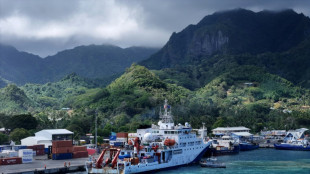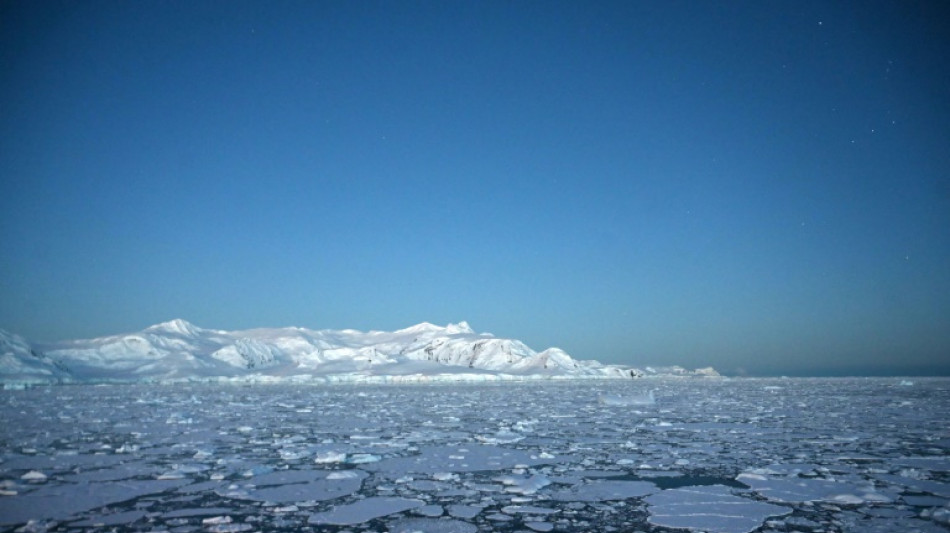
-
 Emegha fires Strasbourg past Lille in Ligue 1
Emegha fires Strasbourg past Lille in Ligue 1
-
Howe takes blame for Newcastle's travel sickness

-
 Pumas maul Wales as Tandy's first game in charge ends in defeat
Pumas maul Wales as Tandy's first game in charge ends in defeat
-
'Predator: Badlands' conquers N. American box office

-
 Liga leaders Real Madrid drop points in Rayo draw
Liga leaders Real Madrid drop points in Rayo draw
-
'Killed on sight': Sudanese fleeing El-Fasher recall ethnic attacks
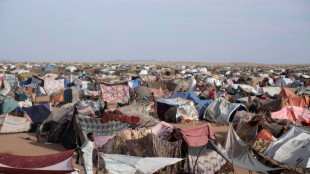
-
 Forest boost survival bid, Man City set for crucial Liverpool clash
Forest boost survival bid, Man City set for crucial Liverpool clash
-
US air travel could 'slow to a trickle' as shutdown bites: transport secretary

-
 Alcaraz makes winning start to ATP Finals
Alcaraz makes winning start to ATP Finals
-
'I miss breathing': Delhi protesters demand action on pollution

-
 Just-married Rai edges Fleetwood in Abu Dhabi playoff
Just-married Rai edges Fleetwood in Abu Dhabi playoff
-
All aboard! Cruise ships ease Belem's hotel dearth
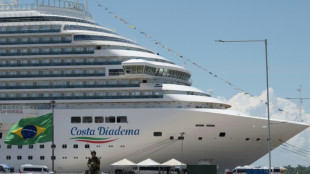
-
 Kolo Muani drops out of France squad with broken jaw
Kolo Muani drops out of France squad with broken jaw
-
Israel receives remains believed to be officer killed in 2014 Gaza war

-
 Dominant Bezzecchi wins Portuguese MotoGP
Dominant Bezzecchi wins Portuguese MotoGP
-
Super Typhoon Fung-wong makes landfall in Philippines
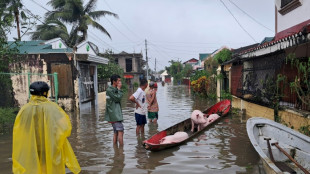
-
 Rai edges Fleetwood in Abu Dhabi playoff
Rai edges Fleetwood in Abu Dhabi playoff
-
Scotland sweat on Russell fitness ahead of Argentina clash

-
 Faker's T1 win third back-to-back League of Legends world crown
Faker's T1 win third back-to-back League of Legends world crown
-
Former world champion Tanak calls time on rally career

-
 Ukraine scrambles for energy after Russian attacks
Ukraine scrambles for energy after Russian attacks
-
Over 1 million evacuate as deadly Super Typhoon Fung-wong nears Philippines
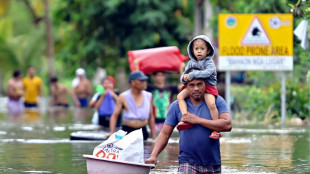
-
 Erasmus' ingenuity sets South Africa apart from the rest
Erasmus' ingenuity sets South Africa apart from the rest
-
Asaji becomes first Japanese in 49 years to win Singapore Open

-
 Vingegaard says back to his best after Japan win
Vingegaard says back to his best after Japan win
-
Philippines evacuates one million, woman dead as super typhoon nears
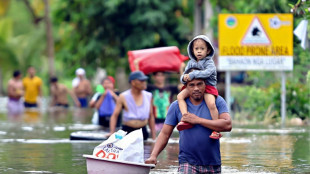
-
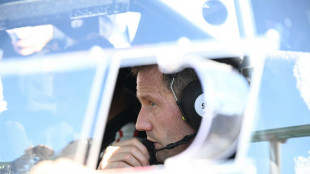 Ogier wins Rally Japan to take world title fight to final race
Ogier wins Rally Japan to take world title fight to final race
-
A decade on, survivors and families still rebuilding after Paris attacks
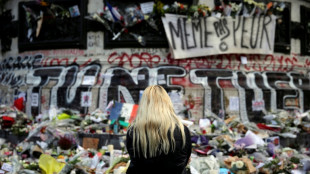
-
 Russia's Kaliningrad puts on brave face as isolation bites
Russia's Kaliningrad puts on brave face as isolation bites
-
Philippines evacuates hundreds of thousands as super typhoon nears
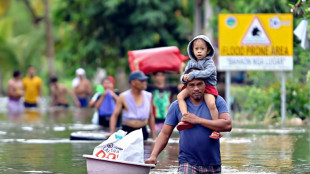
-
 Syrian president arrives in US for landmark visit
Syrian president arrives in US for landmark visit
-
Cyndi Lauper, Outkast, White Stripes among Rock Hall of Fame inductees
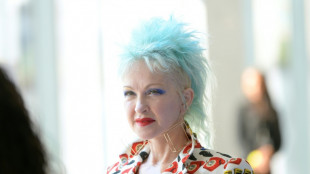
-
 Fox shines in season debut as Spurs down Pelicans, Hawks humble Lakers
Fox shines in season debut as Spurs down Pelicans, Hawks humble Lakers
-
New Zealand edge West Indies by nine runs in tense third T20

-
 Messi leads Miami into MLS playoff matchup with Cincinnati
Messi leads Miami into MLS playoff matchup with Cincinnati
-
Ukraine scrambles for energy with power generation at 'zero'

-
 India mega-zoo in spotlight again over animal acquisitions
India mega-zoo in spotlight again over animal acquisitions
-
Messi leads Miami into MLS Cup playoff matchup with Cincinnati

-
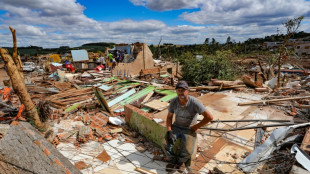 Tornado kills six, injures 750 as it wrecks southern Brazil town
Tornado kills six, injures 750 as it wrecks southern Brazil town
-
Minnesota outlasts Seattle to advance in MLS Cup playoffs

-
 Dental Crowns 101: A Beginner's Guide
Dental Crowns 101: A Beginner's Guide
-
Marseille go top in Ligue 1 as Lens thrash Monaco

-
 Fourteen-man South Africa fight back to beat France
Fourteen-man South Africa fight back to beat France
-
Atletico, Villarreal win to keep pressure on Liga giants

-
 Chelsea down Wolves to ease criticism of Maresca's rotation policy
Chelsea down Wolves to ease criticism of Maresca's rotation policy
-
England's Genge eager to face All Blacks after Fiji win

-
 Wasteful Milan draw at Parma but level with Serie A leaders Napoli
Wasteful Milan draw at Parma but level with Serie A leaders Napoli
-
Fire kills six at Turkish perfume warehouse

-
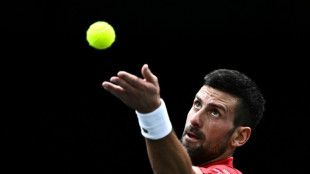 Djokovic pulls out of ATP Finals with shoulder injury
Djokovic pulls out of ATP Finals with shoulder injury
-
Rybakina outguns world No.1 Sabalenka to win WTA Finals


Antarctic sea ice cover at record low
Sea ice in Antarctica shrank to the smallest area on record in February for the second year in a row, continuing a decade-long decline, the European Union's climate monitoring service said Tuesday.
On February 16, the ocean surface covered by ice around the frozen continent shrank to 2.09 million square kilometres (800,000 square miles), the lowest level since satellite records began, according to figures provided to AFP by the Copernicus Climate Change Service (C3S).
"Antarctic sea ice reached its lowest extent in the 45-year satellite data record," said Samantha Burgess, Deputy Director of C3S.
US government scientists have also confirmed a new record last month but indicated an even lower figure of 1.79 million sq km, a difference Copernicus attributed to "different sea ice retrieval algorithms".
Sea-ice concentrations during the southern hemisphere summer were well below average in all sectors of the Southern Ocean.
Startlingly, the record lows this year and in 2022 are about 30 percent below the 1981-2010 average.
"These low sea-ice conditions may have important implications for the stability of Antarctic ice shelves and ultimately for global sea level rise," said Burgess.
"Polar ice caps are a sensitive indicator of the climate crisis."
Melting sea ice has no discernible impact on sea levels because the ice is already in ocean water.
- A new trend -
But diminished ice cover is nonetheless a major concern because it helps accelerate global warming, including in the Arctic region.
About 90 percent of the Sun's energy that hits white sea ice is reflected back into space. But when sunlight hits dark, unfrozen ocean water, nearly the same amount of that energy is absorbed instead, contributing directly to a warming planet.
Both the North and South pole regions have warmed by roughly three degrees Celsius compared to late 19th-century levels, three times the global average.
But unlike sea ice in the Arctic, which has diminished by three percent a year since the late 1970s, sea ice in Antarctica has remained relatively constant over the same period, albeit with large annual variations.
Until recently -- over the last eight years -- minimum sea ice extent in the Southern Ocean has consistently been below the average for the 1991-2020 period.
Antarctica encountered its first recorded heatwave in 2020, with an unprecedented 9.2C above the mean maximum. In March last year, a research centre in eastern Antarctica saw temperatures soar 30 degrees above normal.
Recent ice cover during the austral summer has shrunk most around West Antarctica, which is more vulnerable to the impacts of global warming than the far larger East Antarctica.
The record minimum sea ice extent in the Arctic -- 3.4 million square kilometres -- occurred in 2012, with the second- and third-lowest ice-covered areas in 2020 and 2019, respectively.
In 2021, The UN's IPCC climate science advisory panel forecast with "high confidence" that the Arctic Ocean would become practically ice-free in September at least once by mid-century.
J.Williams--AMWN
